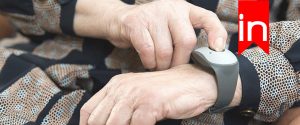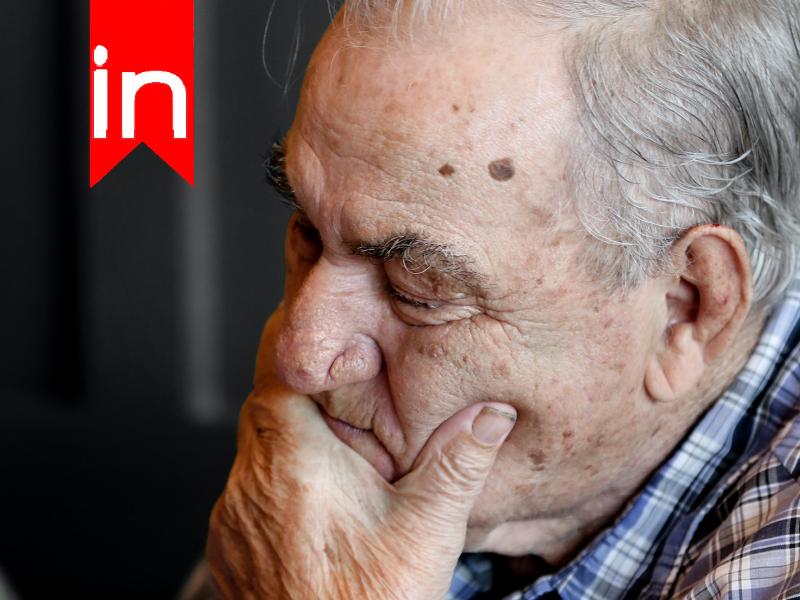Investing in a medical alert system is always a good alternative to a nursing home or memory care facility when deciding on how to care for your loved one when you’re not around. If you’re not home and something happens to them, such as a fall, or they wander away from their home on accident, you want to make sure that they can receive help if an event like that occurs. Especially when your loved one is in the early or middle stages of the disease, and can still do things on their own, they may want the freedom to be by themselves and live the rest of their lives as normally as they possibly can. A medical alert system may be the right choice for you and your family member.
What to Put on an Alzheimer’s Medical Alert System
When purchasing any kind of medical alert system for a dementia patient, make sure that it includes fall detection, GPS tracking, and two-way communication. A couple of companies that have good medical alert systems with these features include Medical Guardian or Medical Alert. Medical Guardian’s system: The Active Guardian; this system has WiFi capabilities to help pinpoint your location along with the already enabled GPS tracking. This package comes with a single mobile unit that can only be worn on a pendant (waterproof), and also has optional fall detection if desired for an extra fee. The mobile unit has everything built into it – an emergency button, speaker for two-way communication, the GPS & WiFi, and the fall detection if you choose to purchase it. (it is recommended) Medical Alert’s system: The Mobile/GPS System; this system works for on-the-go or at home; comes with a base/mobile unit linked to a cellular number, GPS tracking, waterproof interchangeable pendant and wristband options, a 36-hour backup battery, and has fall detection capabilities for an extra fee. (it is still recommended) The two-way communication in this device is in the mobile unit that can be activated by pushing the button on your wrist or pendant. Any other companies that have fall detection, two-way communication, and GPS tracking in any of their offered packages will work as well. (just make sure that they are all included in the same system)How to Keep Dementia Patients from Wandering
Some good methods that can keep dementia patients at home where they’ll be safe include wearing a GPS device at all times or by installing some sort of door or window alarms and locks. The GPS device that you can use should come with your medical alert system if you choose to purchase one of the systems above, or any other medical alert that comes with GPS tracking. Window or door locks/alarms that you could use for dementia patients are childproof doorknob covers for something simple, and if you want to go all out on protecting your loved one, you can purchase alarms that you would install on doors or windows in the house, and if they are opened, you would get an alert. These suggestions are for extra precautions and safety if the patient is known to wander, or if you just want to have something just in case your loved one decides to leave unattended.Why Do Dementia Patients Wander?
Dementia patients can wander for one or for many reasons. The main reasons that patients may wander include:- fear or stress – being fearful, worried, or stressed out about something or for someone can be a big reason why they may wander
- basic needs – looking for food or water can cause a patient to wander
- searching for someone or something
- boredom
- old routines – a patient may think that they need to go to work again or to any other thing that they used to do before they experienced the disease and its symptoms
Conclusion
Having a loved one with dementia of any kind can be nerve-racking and stressful, but with the proper medical alert system, safety precautions, and overall physical/mental care for them, they should feel safe and secure, and so should you, knowing that you made the right decision.
In The Bulletin
Related Posts

Medical Alert Bracelet For Breast Cancer Patients: Essential Information for Emergencies
Breast cancer survivors often face a range of health concerns following their treatment, and one ...

Medical Alert Watch With No Monthly Fee
Medical alert watches have become increasingly popular among seniors and their caregivers. These devices provide ...

Why Seniors Living At Home Need a Medical Alert System
Seniors living at home need a medical alert system to ensure their safety and security ...

Activities of Daily Living: A Comprehensive Guide to Maintaining Independence
Activities of daily living (ADLs) are the routine tasks that individuals perform every day to ...
Sponge Bath: Bed Bathing Seniors
Sponge baths, also known as bed baths, are a common practice used to clean the ...

Seniors Bulletin Ratings

LifeCall is an American company with a long history of providing excellent monitoring services and efficient emergency alert systems to health care facilities catering to the elderly and individuals for use both indoors and on the go all over the United States.
Call Now
1 (866) 225-1295
Read The Review


